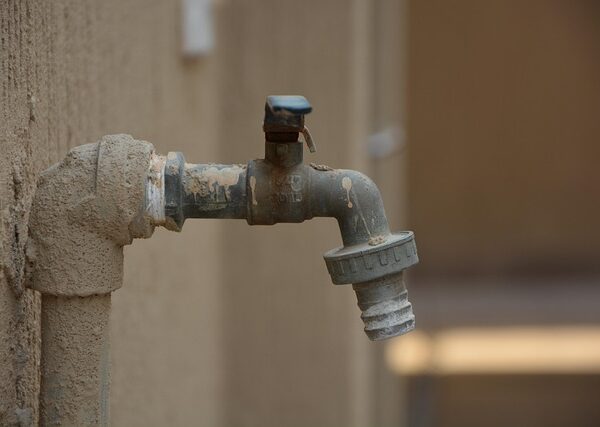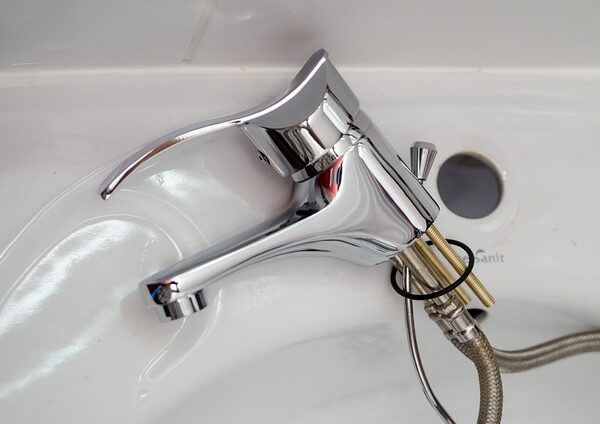Knoxville Plumbers: An In-Depth Exploration
Introduction
Welcome to an extensive exploration of a critical yet often overlooked aspect of modern infrastructure – Knoxville plumbers. This article aims to unravel the complexities, significance, and global impact of this specialized profession. Through a comprehensive lens, we will delve into its historical roots, current practices, technological innovations, regulatory frameworks, and the challenges it faces. By the end, readers will gain a profound understanding of Knoxville plumbers’ vital role in shaping our urban landscapes and ensuring essential services worldwide.
Understanding Knoxville Plumbers: Unveiling the Profession
Definition: Knoxville plumbers are skilled professionals specializing in the installation, maintenance, and repair of plumbing systems within residential, commercial, and industrial properties. Their expertise encompasses a wide range of tasks, from laying pipes and installing fixtures to troubleshooting leaks and ensuring water supply safety.
Core Components: The profession revolves around several key components:
-
Plumbing Systems Design: Involves creating efficient and effective plumbing layouts for new constructions or renovations, considering local codes and sustainability practices.
-
Installation: Plumbers lay pipes, fit fixtures (sinks, toilets, showers), and connect appliances to water supply lines, ensuring proper functionality and pressure.
-
Maintenance and Repair: Regular upkeep and quick fixes are essential to prevent disruptions. This includes checking for leaks, unclogging drains, repairing broken pipes, and replacing worn-out components.
-
Water Heating and Supply: Plumbers install and service water heaters, ensure safe drinking water quality, and maintain hot water distribution systems.
-
Drainage and Wastewater Management: Proper drainage is critical to prevent flooding. Plumbers design and repair drainages, troubleshoot clogs, and manage wastewater removal systems.
Historical Context: The roots of modern plumbing can be traced back to ancient civilizations like the Romans, who pioneered complex water distribution networks. However, Knoxville plumbers as we know them today have evolved significantly over the past century. With urbanization and industrialization, the demand for specialized plumbing services grew, leading to the formalization of training programs and regulatory bodies.
Global Impact and Trends: A World-Wide Reach
Knoxville plumbers’ influence extends far beyond local communities, with their expertise shaping urban centers worldwide. Here’s a global perspective:
| Region |
Key Trends |
Notable Impacts |
| North America |
Growing demand for retrofitting old buildings to meet modern plumbing codes. Green plumbing practices are gaining traction, focusing on water conservation and energy efficiency. |
Improved water conservation rates and reduced environmental impact in major cities like New York and Los Angeles. |
| Europe |
Strict EU regulations drive the adoption of advanced plumbing systems, promoting energy efficiency and smart home technologies. |
Increased installation of low-flow fixtures and smart thermostats, reducing water and energy consumption across the continent. |
| Asia Pacific |
Rapid urbanization drives a surge in new construction, requiring skilled plumbers to meet stringent building codes. |
The rise of modern, efficient plumbing systems in cities like Tokyo and Singapore, setting global standards for urban sanitation. |
| Middle East & Africa |
Desalination plants are becoming more common, creating new job opportunities for specialized plumbers. |
These regions are witnessing improved access to clean water due to advanced plumbing infrastructure development. |
Economic Considerations: Driving Market Dynamics
The Knoxville plumbers’ industry is a significant contributor to global economies, with various market dynamics at play:
-
Global Market Size: According to a 2021 report, the global plumbing services market is valued at approximately $583 billion, expected to grow at a CAGR of 6.5% from 2022 to 2030.
-
Local Economies: Plumbers play a vital role in local construction and real estate sectors, contributing to economic growth and job creation. In Knoxville, for instance, the plumbing industry supports numerous businesses, from supply stores to specialized contractor firms.
-
Investment Patterns: Private investments in infrastructure development often target plumbing systems as a critical component of new construction projects, especially in emerging markets.
-
Cost Analysis: Plumbers’ services vary based on location, project scope, and complexity. Factors influencing costs include labor rates, material expenses, and equipment usage. For example, a simple faucet installation might cost $150-$300, while major renovations or new builds can range from thousands to tens of thousands of dollars.
Technological Advancements: Revolutionizing the Trade
Technology has significantly transformed Knoxville plumbers’ work, enhancing efficiency and opening new avenues:
-
Smart Plumbing Systems: Internet-connected plumbing devices allow remote monitoring and control. For instance, smart thermostats optimize water heating, reducing energy consumption. Leak detection sensors can send alerts to homeowners or service providers, preventing costly damage.
-
Remote Diagnosis and Repair: Advanced diagnostics tools enable plumbers to identify issues remotely using video cameras, pressure testers, and flow meters. This reduces on-site visits, saving time and costs.
-
3D Modeling Software: Computer-aided design (CAD) software assists in creating precise plumbing layouts, facilitating complex installations and renovations. It also aids in visualizing potential problems before they occur.
-
Robotic Pipeline Inspection: High-tech robots equipped with cameras inspect pipes for damage, corrosion, or blockages, providing valuable data for maintenance planning.
Policy and Regulation: Shaping Industry Standards
Regulatory bodies play a crucial role in ensuring the quality and safety of plumbing services worldwide. Here’s how they impact the Knoxville plumbers’ landscape:
-
Building Codes: Local governments enforce building codes that dictate minimum plumbing standards for new constructions and renovations. These codes ensure safe water supply, drainage, and fire protection. For example, the International Plumbing Code (IPC) is widely adopted in North America, setting guidelines for plumbing installations.
-
Licensing and Certification: Many jurisdictions require plumbers to obtain licenses or certifications to practice. These programs assess knowledge and skills, ensuring competent professionals. The Knoxville area follows similar standards, mandating licensed plumbers for certain types of work.
-
Environmental Regulations: With growing environmental consciousness, governments are implementing regulations to promote water conservation and reduce pollution. Plumbers must adhere to these rules when installing or repairing systems.
-
Safety Standards: To protect both workers and the public, there are strict safety guidelines for handling hazardous materials, using protective equipment, and ensuring safe work practices.
Challenges and Criticisms: Overcoming Obstacles
Despite its vital role, Knoxville plumbers face several challenges that require attention:
-
Skills Gap: The plumbing industry struggles with a shortage of skilled workers due to perceived low pay and physical demands. Addressing this gap through targeted training programs is essential to meet growing demand.
-
Ageing Infrastructure: Many cities are dealing with aging water pipes, which can lead to frequent leaks and disruptions. Upgrading and maintaining infrastructure require substantial investment and specialized knowledge.
-
Environmental Concerns: Plumbers must navigate the delicate balance between providing efficient plumbing services and minimizing environmental impact. This includes responsible waste management and adherence to strict pollution control measures.
Solutions and Strategies:
- Implementing apprenticeships and mentorship programs to attract and train the next generation of plumbers.
- Encouraging public-private partnerships for infrastructure upgrades, leveraging technological solutions for cost-effective maintenance.
- Offering incentives and subsidies for homeowners to replace old pipes and install water-efficient fixtures.
- Collaborating with environmental agencies to develop sustainable plumbing practices and promote public awareness.
Case Studies: Real-World Success Stories
1. Singapore’s Smart Nation Initiative
Singapore is renowned for its smart city initiatives, and its plumbing infrastructure plays a pivotal role. The National Water Agency (NEA) has implemented advanced water management systems, including real-time monitoring of water quality and pressure. Smart meters enable efficient billing, while a national pipeline renovation program addresses aging infrastructure. This comprehensive approach ensures reliable and sustainable water supply for residents and businesses.
2. Los Angeles’ Green Plumbing Program
The City of Los Angeles launched the Green Plumbing Program to promote water conservation and reduce urban heat island effects. The initiative encourages the use of low-flow fixtures, greywater recycling systems, and cool roofs in new constructions. Plumbers are trained in these sustainable practices, ensuring efficient plumbing designs that benefit both the environment and water bills.
3. Knoxville’s Downtown Revitalization Project
The Knoxville downtown area underwent a significant revitalization project, focusing on mixed-use development and historic preservation. Local plumbers were integral to this transformation, providing expert services for complex renovations. By combining traditional plumbing skills with modern technology, they ensured the new buildings met stringent codes while enhancing the city’s appeal.
Future Prospects: Looking Ahead
The future of Knoxville plumbers looks promising, shaped by emerging trends and technological innovations:
-
Smart Cities and IoT: The Internet of Things (IoT) will further integrate plumbing systems into smart cities, enabling remote monitoring and control. This includes intelligent water management, predictive maintenance, and enhanced customer services.
-
Renewable Energy Integration: As renewable energy sources gain traction, plumbers will play a key role in integrating solar and geothermal heating systems into plumbing layouts, reducing the environmental footprint of buildings.
-
Digitalization and Remote Services: Virtual reality (VR) and augmented reality (AR) technologies can revolutionize training and troubleshooting, allowing plumbers to visualize complex systems remotely.
-
Sustainable Focus: With growing environmental awareness, there will be an increased demand for eco-friendly plumbing solutions, driving innovation in water conservation and recycling technologies.
Conclusion: Shaping Urban Sanitation Globally
Knoxville plumbers are not just local service providers; they are the unsung heroes shaping our urban landscapes, ensuring access to clean water, efficient drainage, and healthy living environments. From historical roots to modern innovations, their profession has evolved to meet the demands of a rapidly changing world. As we look ahead, the future prospects for Knoxville plumbers remain bright, with technology and sustainability at the forefront.
FAQ Section: Answering Common Queries
Q: What qualifications do I need to become a Knoxville plumber?
A: In Knoxville, you typically need a high school diploma or equivalent. However, many employers prefer candidates with formal training through plumbing apprenticeships or technical schools. Licensure is mandatory for certain types of work and involves passing exams that test your knowledge and skills.
Q: How do I know if my plumbing issue requires a professional?
A: Simple maintenance tasks like clearing clogs or fixing leaky faucets can often be tackled by homeowners. However, complex problems such as pipe repairs, repiping, or whole-house water treatment systems usually require professional plumbers to ensure safe and effective solutions.
Q: Are there any environmental benefits to modern plumbing systems?
A: Absolutely! Modern plumbing technologies focus on water conservation, efficient heating, and reduced energy consumption. For instance, low-flow fixtures use significantly less water without compromising performance, contributing to sustainable urban development.
Q: How can I save money on plumbing repairs?
A: Regular maintenance is key to preventing costly repairs. Keep an eye out for warning signs like slow drains or high water bills. Homeowners can also invest in energy-efficient fixtures and appliances, which often pay for themselves over time through reduced utility costs.
Knoxville's climate and aging infrastructure cause frequent water heater issues like insufficient hot water and foul odors, exacerbated by hard water and extreme temperatures. Regular maintenance by local knoxville plumbers prevents these p…….
In Knoxville, homeowners can secure free estimates from local plumbers, providing upfront clarity on plumbing costs. This service offers peace of mind, saving stress and surprise bills for unexpected issues. By comparing detailed quotes, you cho…….

